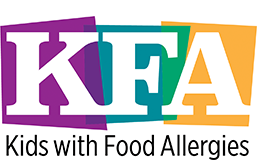Living with Food Allergies

Food Intolerances
Not all children who react to a certain food have an allergy. They may have food intolerance.
Unlike food allergy, a food intolerance doesn’t cause the immune system to react. With food intolerance, the symptoms often involve the digestive system as the body has trouble digesting a certain food. The symptoms usually come on over time and may only happen when your child eats a lot of the food.
Even though food allergy and food intolerance can cause some of the same symptoms, their treatments may differ. The way to prevent both conditions is to stay away from the foods that cause symptoms. Your child’s doctor can diagnose and treat the condition causing reactions to food.
There are many different reasons why a person may have symptoms after eating certain foods. Some examples include:
- Food allergy (an immune disorder) – The immune system makes antibodies against a certain food, causing a wide range of symptoms.
- Lactose intolerance (a digestive disorder) – In lactose intolerance, the body can’t digest lactose, a sugar found in cow’s milk.
- Celiac disease (an autoimmune disorder) – The immune system damages the small intestine when gluten protein found in wheat, rye, or barley is eaten.
- Crohn’s disease (an autoimmune disorder) – This chronic inflammatory bowel disease may cause diarrhea or low weight gain. It is rare in infants and toddlers.
Staying away from the foods that cause symptoms is the best treatment. Your child’s doctor may suggest other steps to prevent a reaction.
Medical Review: August 2014, Updated September 2020
Ask the Allergist
Have a question on managing food allergies, asthma, other allergic conditions? Our allergist can help.











